by Wallace Wyss –
When Harley Earl was GM VP in charge of Styling (later a word replaced by “Design” as “styling” sounded too frivolous) in the Fifties, it seems he had an obsession for testing the limits of how each brand was regarded by the public.
Like he would have a prototype sporty car made of a staid brand like Buick to see if the public, at one of the Motorama shows, clamored for a production version. Between 1953 and 1955, he ordered no less than three Wildcat dream cars, the first the Wildcat I of 1953, then the radical Wildcat II, and finally the Wildcat III for 1955. The last is the most “tame” which means it could have been produced almost as shown though it lacked a proper bumper in the rear.
Even though only one production GM car at the time had a fiberglass body–the Corvette–all these Wildcats had fiberglass coachwork. The bodies were on shortened Buick chassis with a 110-inch wheelbase. The engine was a 322 CID Nailhead V8 tweaked up to 280 hp with a four-carburetor intake setup, while GM pointed toward the future with a floor mounted shifter for the Twin Turbine Dynaflow automatic transmission.
It was an in-between car because at 190 inches overall, it was too long for a sports car but too small for a Buick. The color was a lurid red called “Kimberly Red”, no doubt named after “Gentleman Jim” Kimberly, a silver hired Ray Ban wearing Ferrari racer of the times who, to Earl, symbolized the image he wanted Buick sports car drivers to model themselves after, if there were Buick sports cars. Kind of like saying “You may be middle aged now but hey with this car, you can still get the babes.”
What put off real sports car fans was seating for four. One feature that became available in America later was swiveling front seats. The dash had a lot of gauges and chrome everywhere, and a glamorous four-dial chrome instrument cluster filled the dash. A lot of the design cues migrated to production models. Even the Wildcat name, used from 1964 through 1970.
One website called Mac’s Motor City Garage speculated it was used as fodder to test a new vehicle compactor at a local Detroit junkyard. Then there was always the possibility Earl gifted it to some Hollywood babe, as he had done in the past. Earl was from Hollywood, and knew many movie stars personally. But if that happened you would think she would drive it around for publicity.
The rolled pan at the back is its most exciting feature, without a full width bumper. From the pictures I can’t see where the convertible top stored, if indeed one was designed for it.
In Hemmings article they refer a couple times to “Dagmars” on the bumpers which in the age of political correctness, I am not allowed to explain further. Here’s a picture of the actress Dagmar… ‘Nuf said.
At the General Motors Heritage Center, there is no documented confirmation in the form of an order that it be destroyed. So if you hear of an old Buick stored in a barn since the ’50s, perk up your ears…
Let us know what you think in the Comments.
THE AUTHOR: Wallace Wyss, a fine artist, occasionally depicts old concept cars in his car portraits. For a list of Wyss’ art, write malibucarart@gmail.com
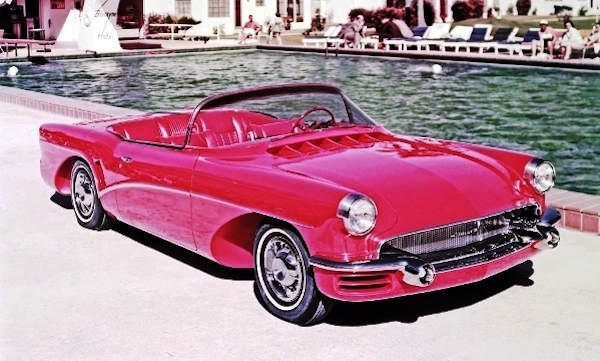
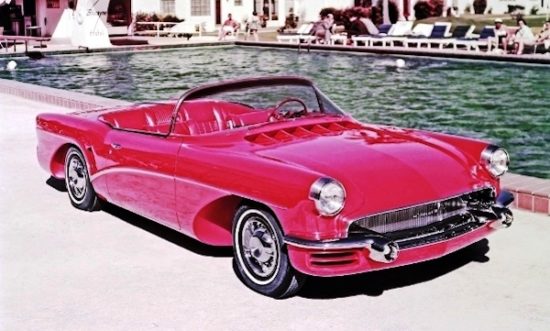
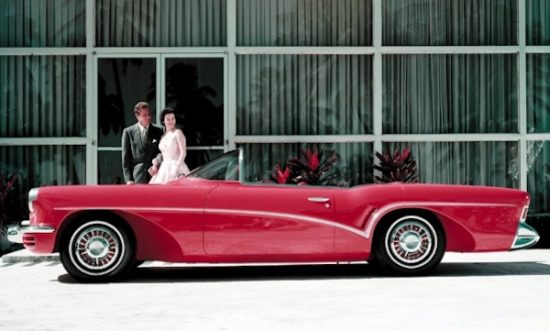
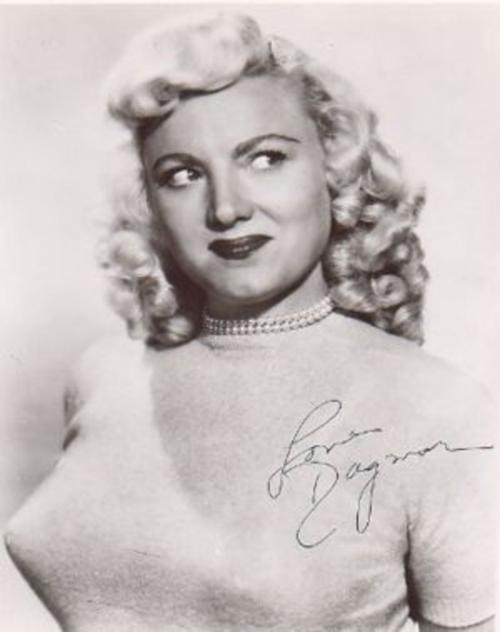
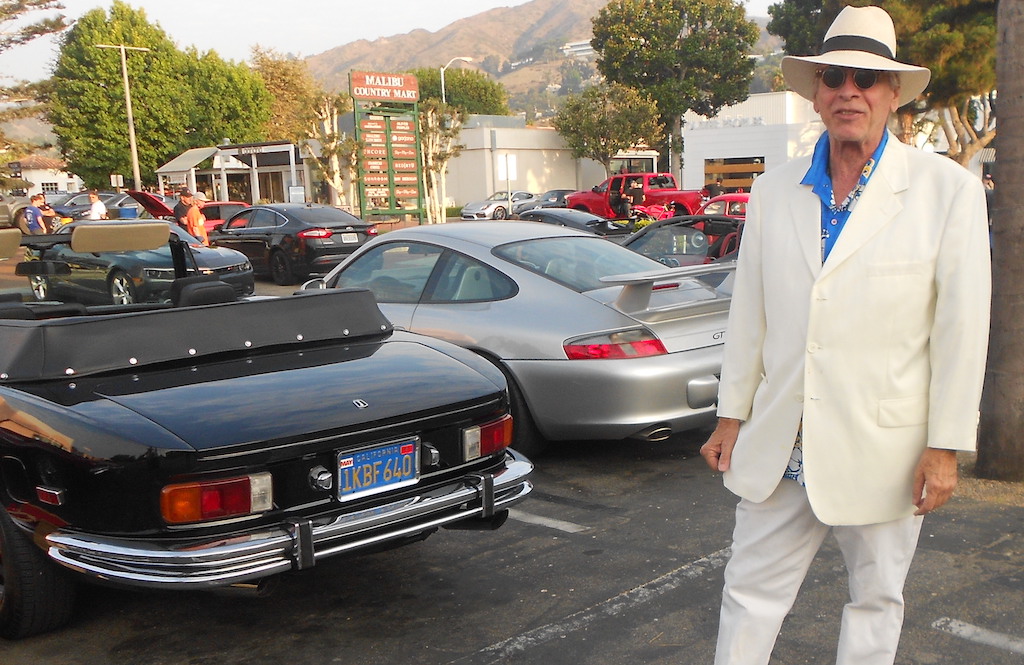
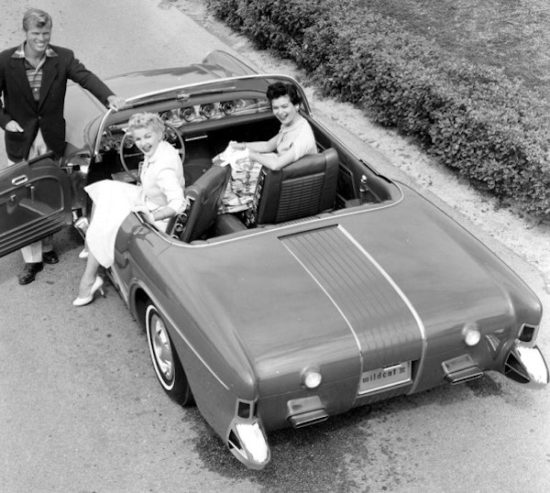

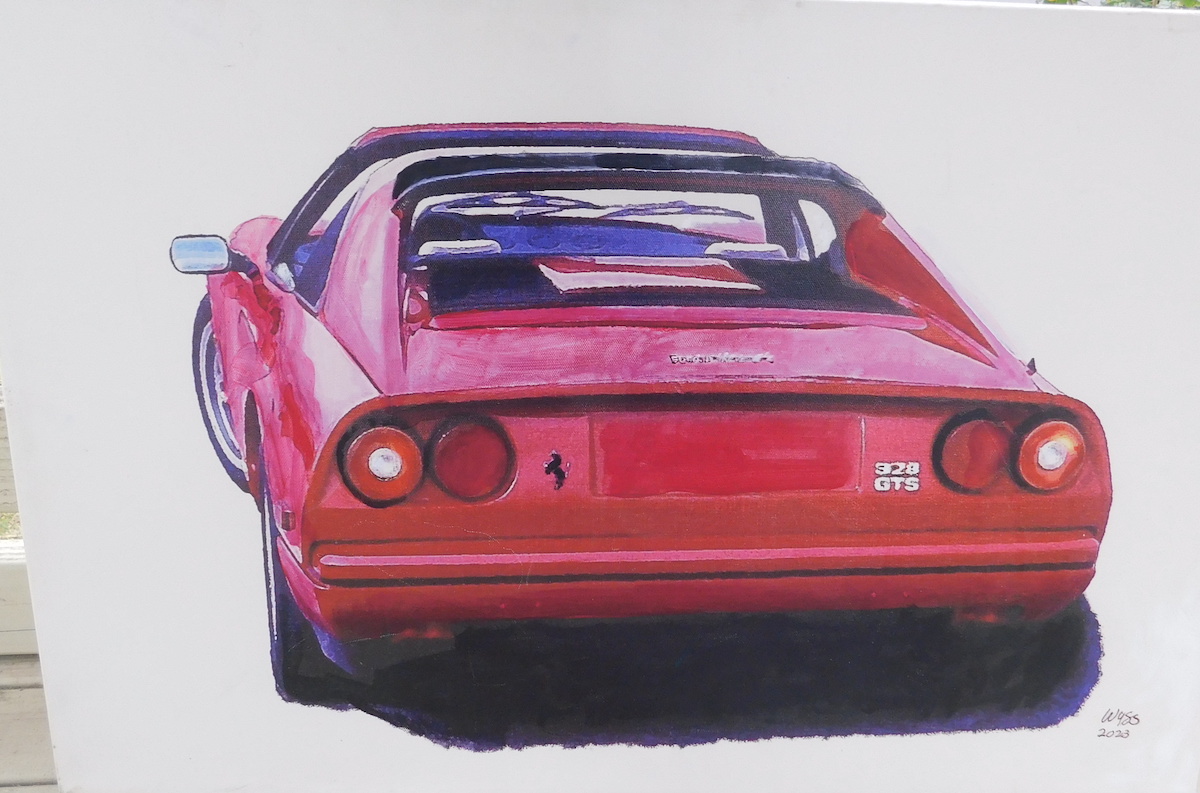

What a cool car! I wish some of the GM design prototypes made it into production over the years. Some designs have been produced more or less, but usually watered down from the models the designers made, likely so that they cars can be made more suitable for mass production. I like the tail lights. Reminds me of those on the 1958 Roadmaster. Thanks for the write up on this car Wallace.
This one looks like it could have been a production design and I suspect it would have been a big hit.